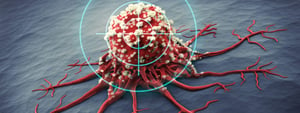Organoids are tiny parts of organs created in the laboratory using “real” cells of the body (which are grown on specific sterile well plates). Hence, they can be used as biological models, capable of reproducing the functions of the body they come from in real time, and even the possible diseases of that body.
In recent years, their uses and applications have been increasing, and they are proving decisive even in the SARS CoV-2 research (responsible for Covid-19). However, researchers from Wake Forest Baptist University of Wiston-Salem have also been using them for some time for another kind of illness: tumour and its rarest forms in particular. Thanks to the accumulated experience, they have now developed a system that could prove very useful in the personalization of the treatment of two types of neoplasm: colon cancer and, much less frequently, cancer of the appendix (affecting only one in 100,000 people, but difficult to treat).
As the researchers explain in the Annals of Surgical Oncology, when these types of cancer reach a very advanced stage, they can be treated with the surgical removal of the tumour itself, together with the direct administration of a dose of preheated chemotherapy in the abdomen (already during the operation), in such a way to combine the benefits of the operation with those of the drugs, as well as with the well-known beneficial effects of hyperthermia, i.e. the momentary overheating that kills the cancer cells.
Nevertheless, this approach, defined as hyperthermic intraperitoneal chemotherapy (HIPEC), which in itself is a long and delicate process, does not always achieve the intended results (several patients do not respond at all, others are healed), probably because the theoretical conditions (for example, concerning the concentration and “mix” of drugs and the temperature to be reached) applied to the individual cases, are not optimal. Another important aspect to take into consideration is that all tumours differ biologically and genetically from one another.
This is why the US researchers have developed a protocol that envisages the culture of an organoid in the laboratory with the cancer cells of each patient, the experimenting of the effects of the therapy on this biological model and, only afterwards, thanks to the data obtained, the performance of the procedure.
By checking the reliability of the organoids of 15 appendiceal and 8 colon cancer patients at different temperatures, and by using possible mixes of drugs, the researchers identified several formulae more favourable than others for the individual patients and, especially, confirmed that the system can be of great help in the development of more effective personalized treatment protocols.

